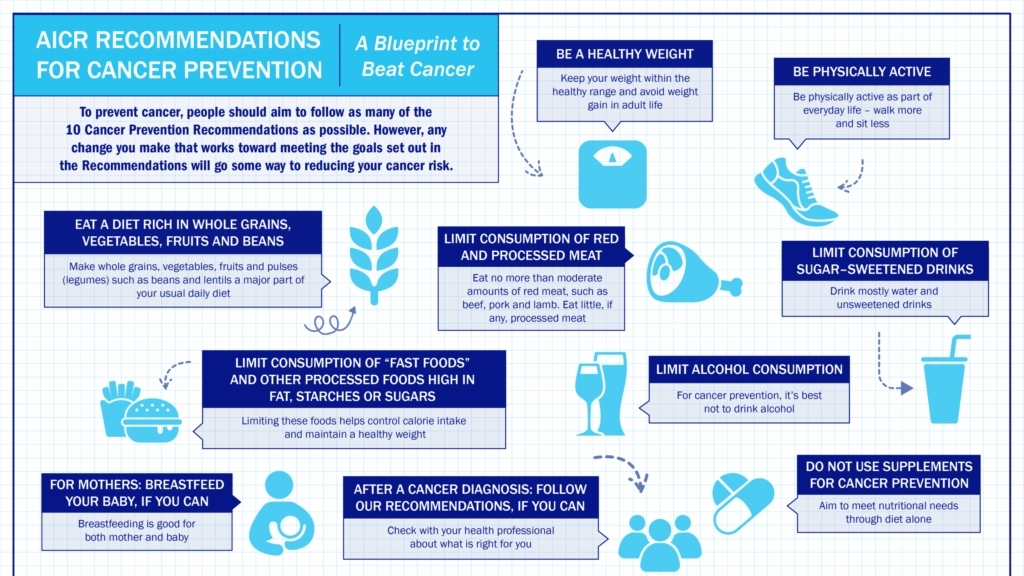
With an increasing body of research highlighting the significant impact of dietary consumption on the risk of cancer, nutritionists worldwide are sounding the alarm. Recent studies estimate that an astounding 25% of cancer cases in the United States alone could be prevented by improving nutrition. This growing body of evidence underscores the crucial role of nutrition in preventing cancer and the urgent need for greater awareness and education about the link between diet and cancer risk.
The Link Between Obesity, Inflammation and Cancer
Obesity and chronic inflammation from a poor diet can lead to insulin growth factors. This scenario promotes an environment conducive to cell proliferation, increasing the risk of cancer. Overweight or obesity can particularly heighten the risk for breast, liver, and colon cancer, making weight management a key facet of cancer prevention.
Importance of a Balanced Diet
A balanced diet plays an indispensable role in reducing the risk of cancer. Experts recommend a plant-forward diet, limiting processed foods, and curbing alcohol intake. Legumes, for instance, have been linked to a lower risk of colorectal cancer. An increase in legume consumption by just one portion per week can decrease colorectal cancer risk by 13%. This finding validates the inclusion of legumes as an effective intervention against colorectal cancer risk in both men and women, irrespective of age.
The Role of Supplements and Vitamins
Supplements and vitamins are meant to complement a healthy diet, not replace it. It is vital to remember that these are not miracle cures for cancer and should not be used as a substitute for a balanced diet. Misinformation on social media often presents these as alternatives to cancer-preventive dietary measures, which can lead to dangerous health consequences.
Practical Steps to Lower Cancer Risk Through Diet
Practical steps to lower cancer risk through diet include adopting a plant-forward diet, limiting caloric intake, and avoiding processed foods. Consuming red meat in moderation is crucial, as excessive intake has been linked to a higher risk of developing diabetes, a condition that can further exacerbate cancer risk. Regular physical activity is another essential aspect of maintaining overall health and reducing the risk of cancer.
In conclusion, the role of nutrition in cancer prevention is indisputable. With the right dietary choices, it is possible to significantly reduce the risk of developing cancer. Incorporating balance, moderation, and variety in our diets, coupled with regular physical activity, can go a long way in promoting overall health and warding off cancer.
